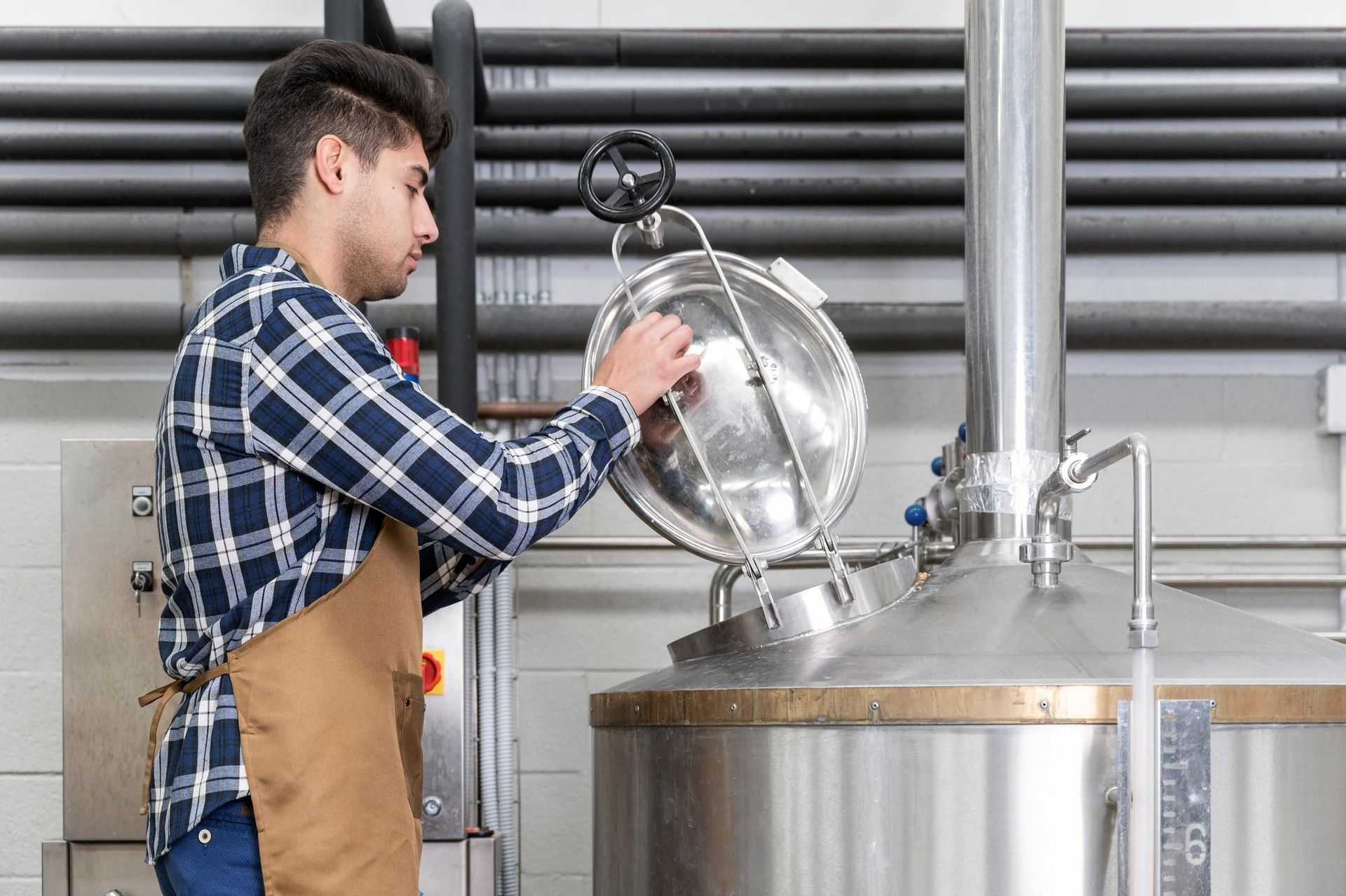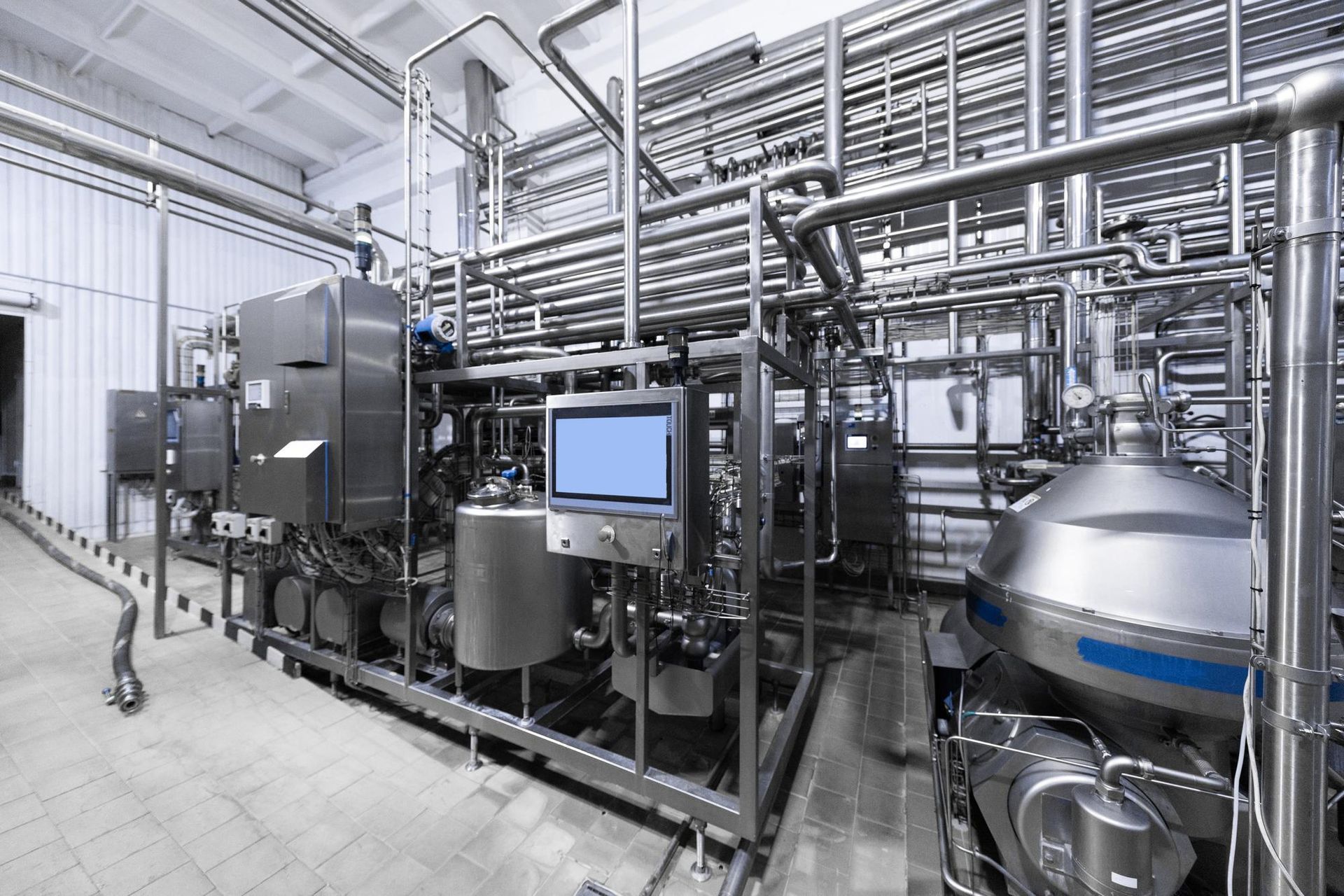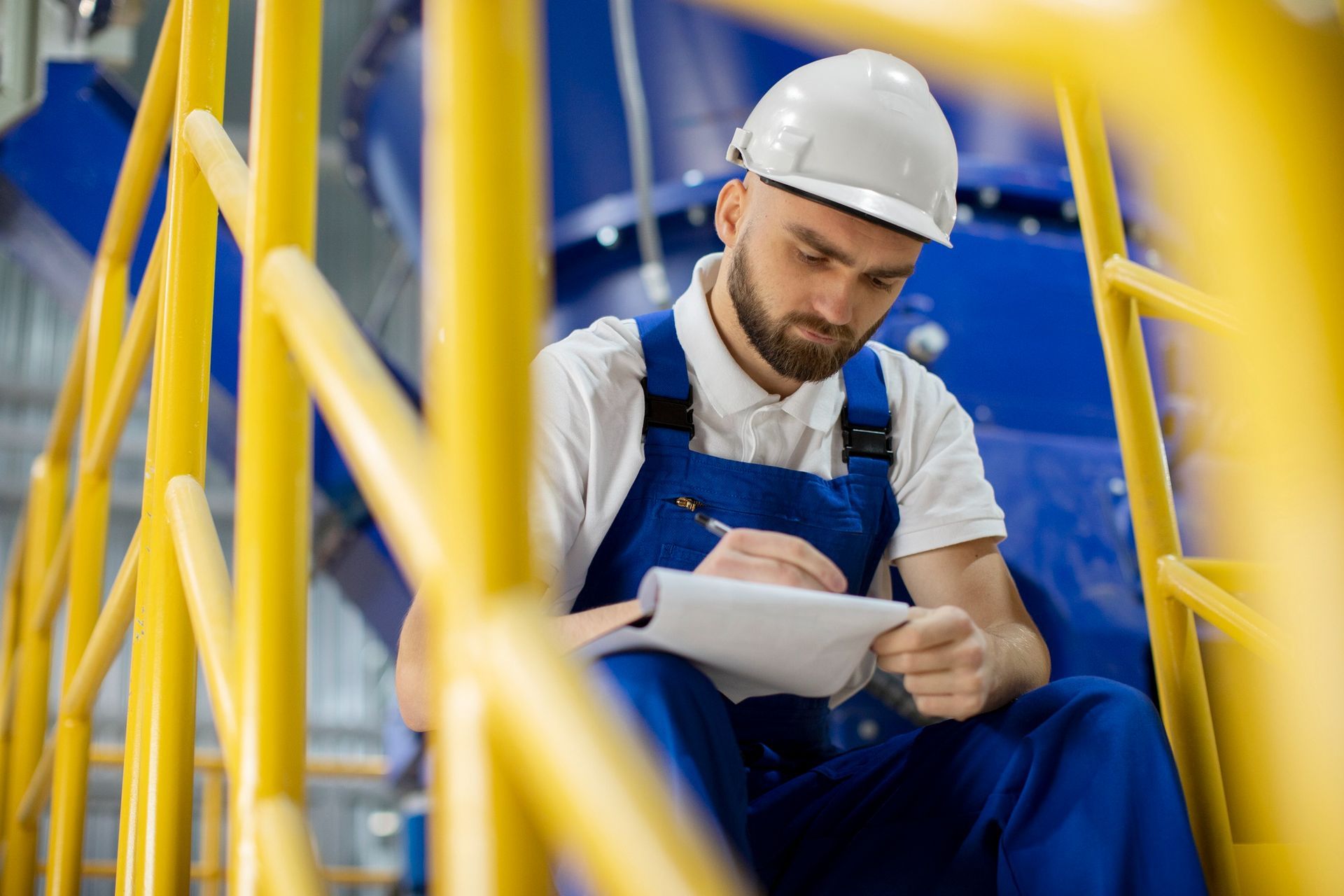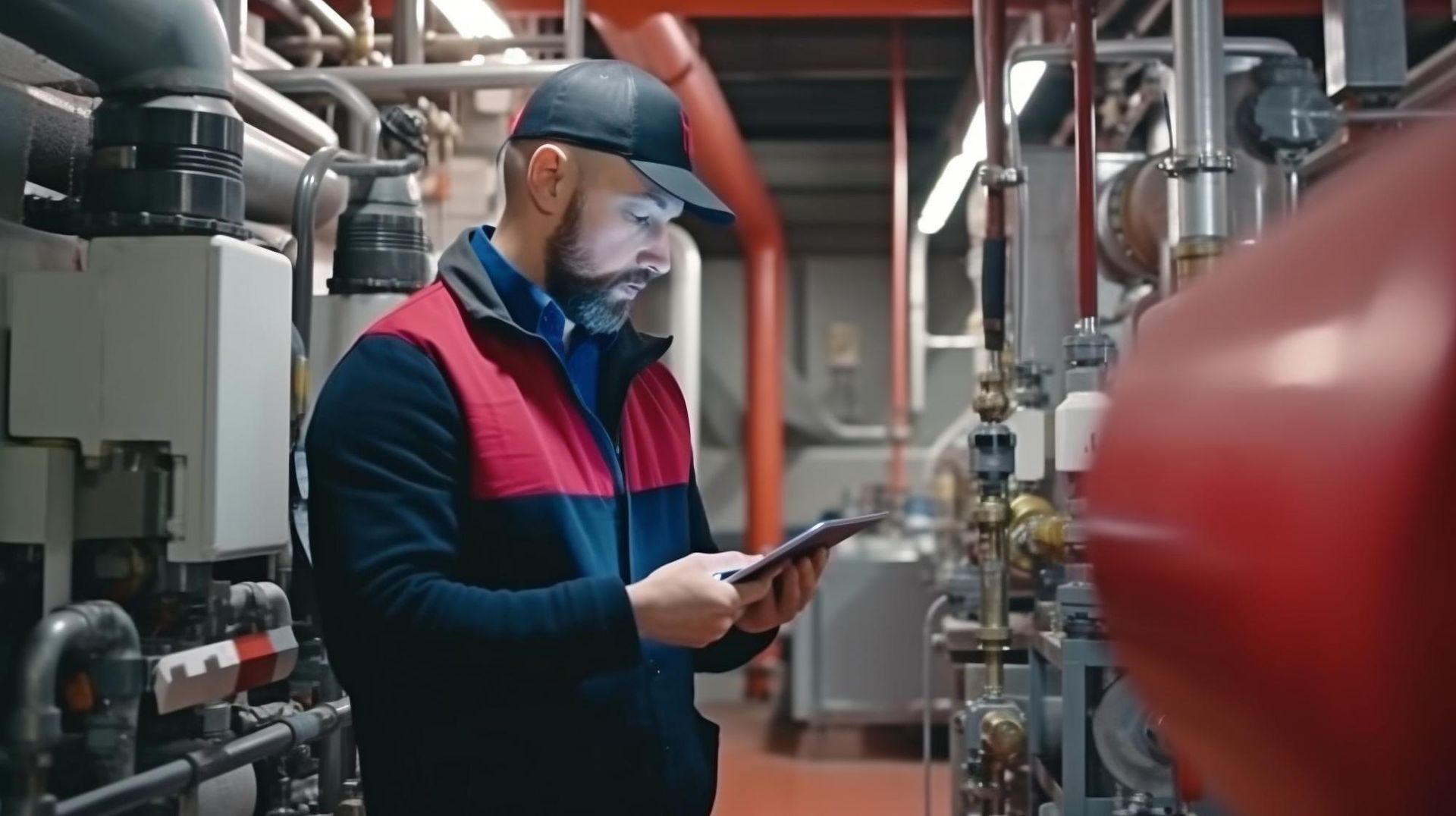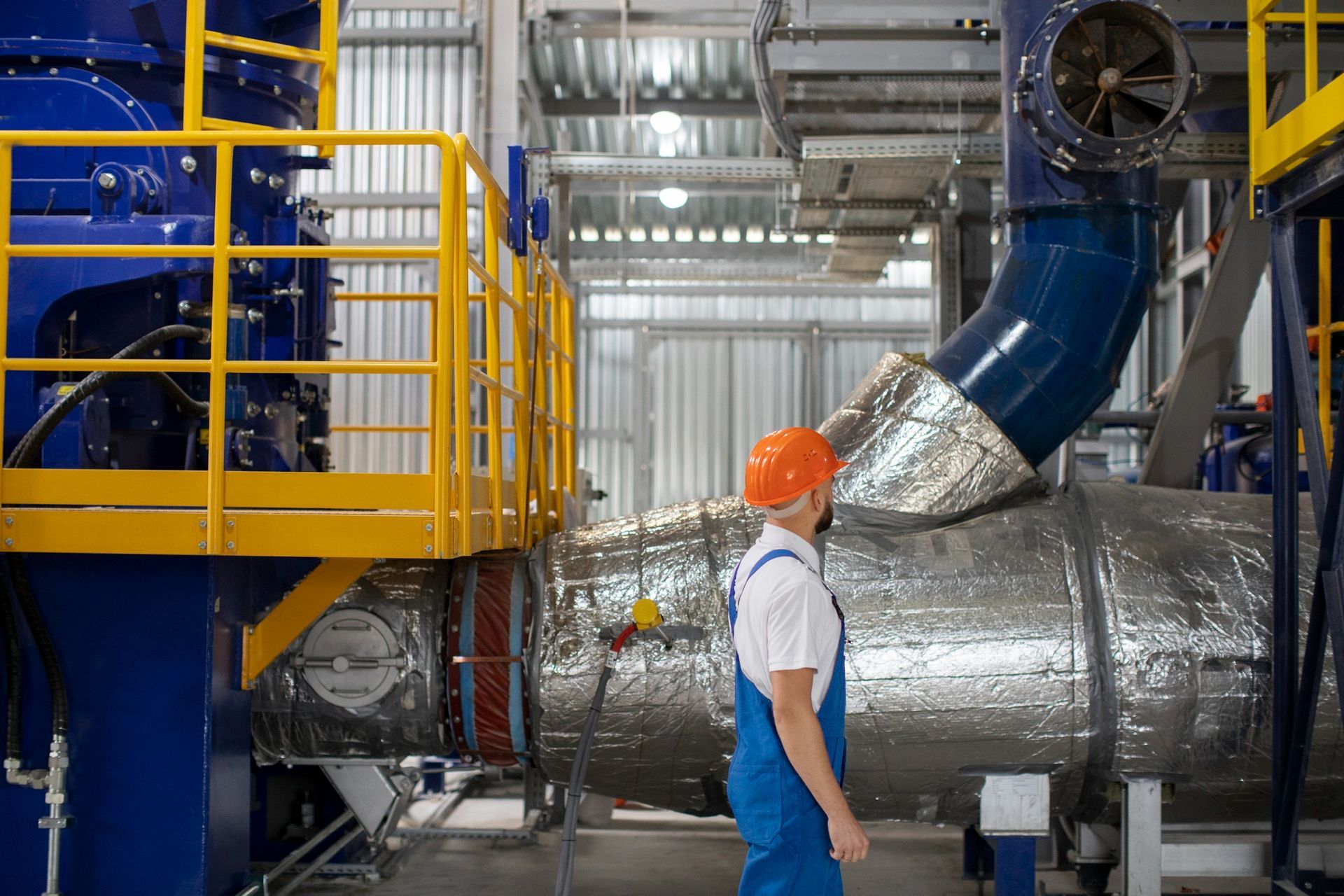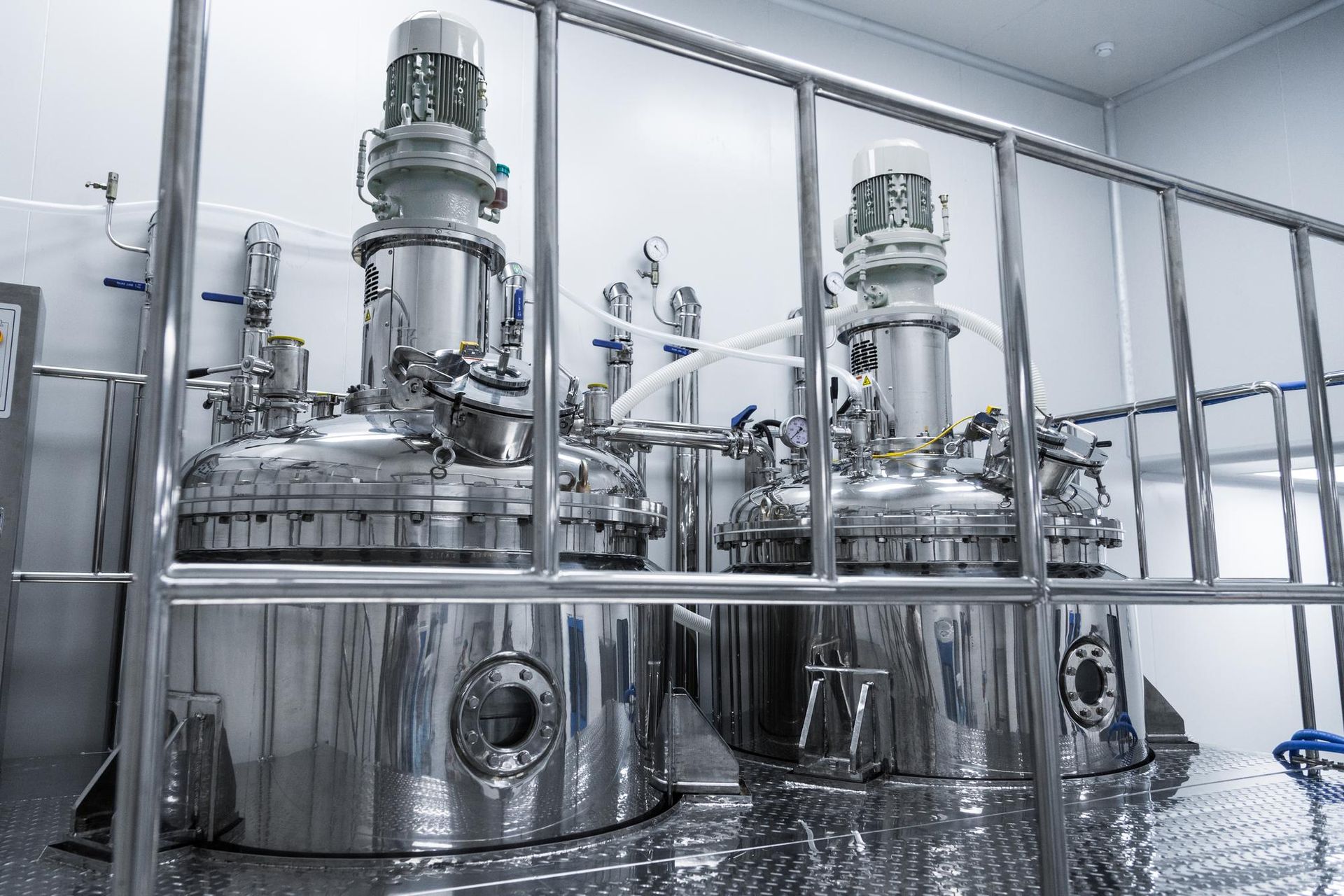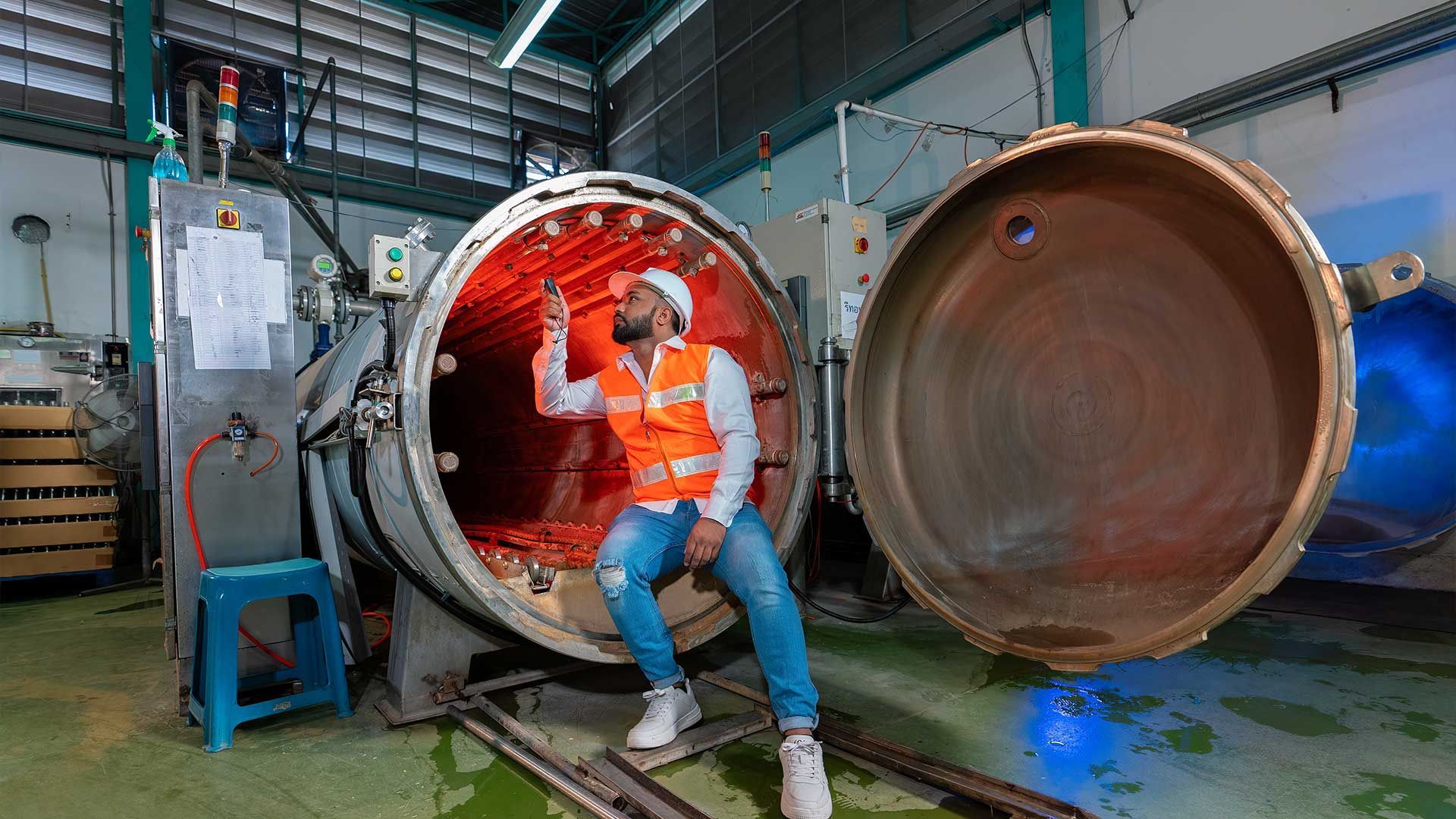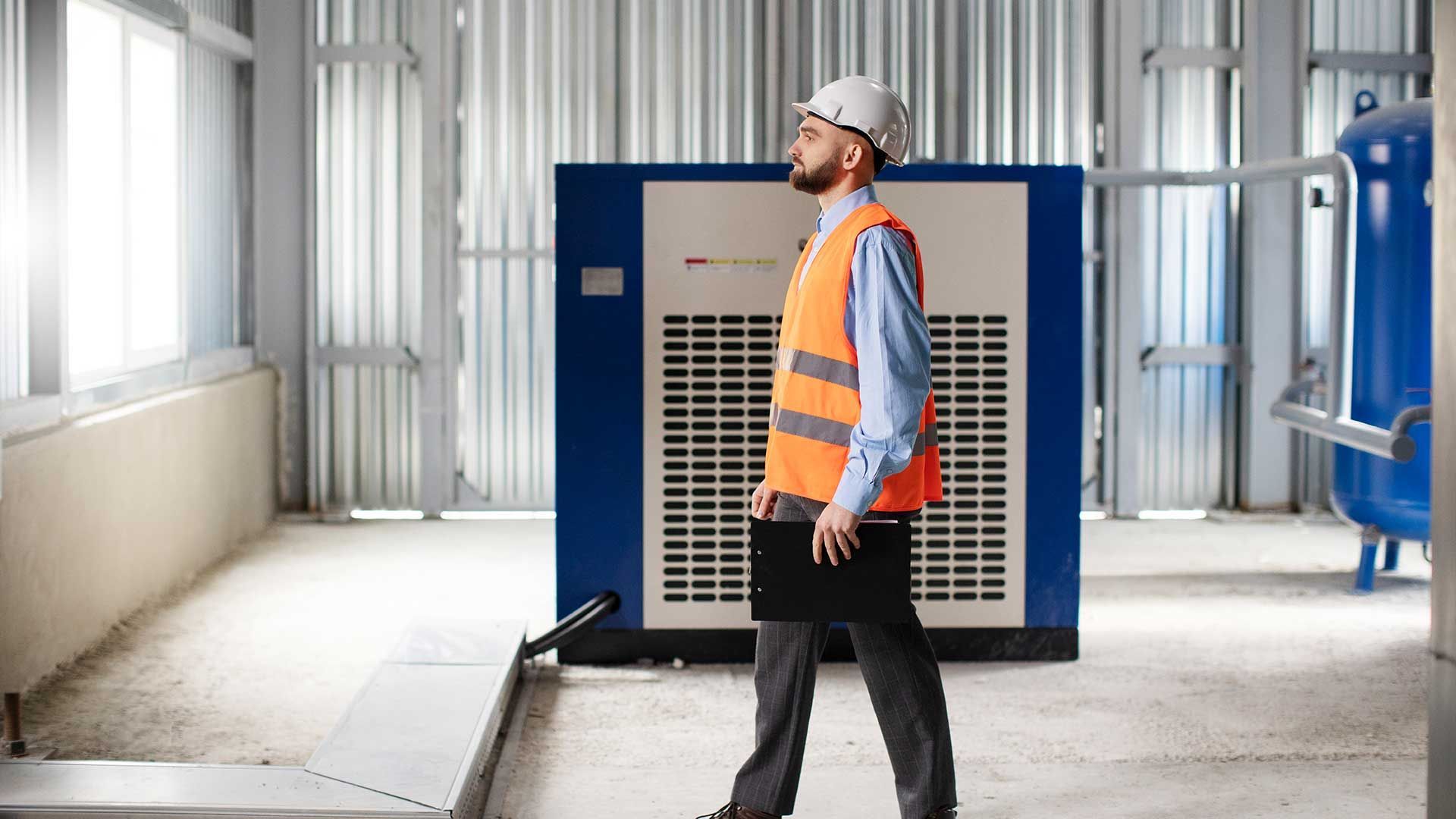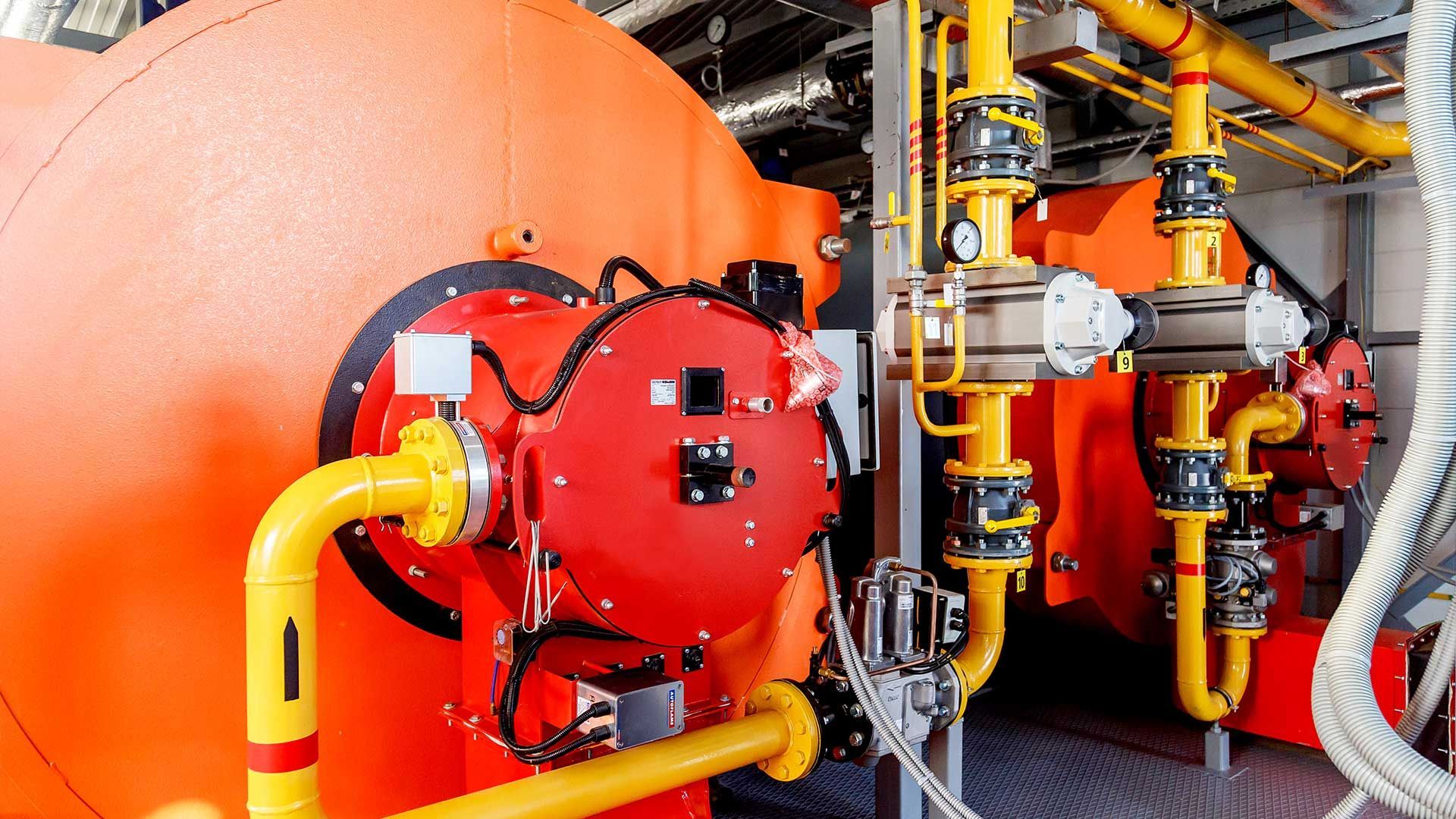CALL US TODAY! (813) 469-7733
CALL US TODAY! (813) 469-7733
Upgrading Your Industrial Boiler: When and How to Invest in Modernization
When it comes to industrial operations, the heartbeat often lies within the performance of the critical equipment, with the "industrial boiler" playing a pivotal role. This article aims to shed light on the crucial topic of upgrading industrial boilers—discussing the indicators that signal the need for modernization, the multitude of benefits it brings, and the strategic considerations for businesses contemplating this significant investment. Industrial boilers, central to numerous manufacturing and processing activities, are subjected to wear and tear over time. Recognizing when and how to invest in their modernization is paramount for companies striving to enhance efficiency, cut operational costs, and stay in line with evolving industry standards. Join us as we navigate through the signs that upgrading is due, the advantages it presents, and the strategic planning involved in ensuring a seamless transition towards a more efficient and sustainable industrial future.
Signs It's Time for an Upgrade
Decreased Efficiency
The first telltale sign that your industrial boiler may be due for an upgrade is a noticeable decrease in efficiency. As boilers age, they may struggle to maintain optimal performance, leading to increased energy consumption and higher operational costs. Recognizing these efficiency dips early on can save businesses from the financial strain caused by prolonged inefficiencies.
Frequent Breakdowns
A second red flag signaling the need for an upgrade is the occurrence of frequent breakdowns. If your industrial boiler is becoming more prone to failures, it not only disrupts production schedules but also results in heightened maintenance expenses. Investing in modernization at this juncture can offer a more reliable and resilient system, reducing the impact of unexpected downtimes on your operations.
Outdated Technology
Using outdated technology can severely hinder competitiveness in the industrial landscape. Upgrading your industrial boiler ensures that you stay technologically relevant, benefiting from the latest advancements that improve efficiency, safety, and overall performance. Embracing modern technology positions your business for greater success in the competitive market.
Changing Regulatory Standards
In a dynamic regulatory environment, keeping up with changing standards is crucial. If your industrial boiler is struggling to meet evolving environmental and safety regulations, it's a clear sign that an upgrade is in order. Modernizing your boiler not only ensures compliance but also demonstrates a commitment to sustainability and responsible industrial practices. In the following sections, we'll explore the numerous benefits that come with upgrading your industrial boiler.
Benefits of Industrial Boiler Modernization
Improved Energy Efficiency
One of the key benefits of modernizing your industrial boiler is the substantial improvement in energy efficiency. Upgraded boilers incorporate advanced technologies designed to optimize fuel consumption and heat transfer. This not only reduces operational costs but also aligns with sustainability goals by minimizing energy waste. Improved energy efficiency contributes to a greener operation while positively impacting the bottom line.
Enhanced Performance and Reliability
Modernized industrial boilers offer enhanced performance and reliability, crucial for maintaining smooth and uninterrupted operations. Investing in the latest technologies ensures that your boiler can handle increased workloads efficiently. This results in fewer disruptions, reduced downtime, and improved overall productivity. The enhanced reliability of a modernized boiler provides businesses with the confidence that their critical processes will run seamlessly.
Environmental Compliance
As environmental regulations become more stringent, industrial facilities must prioritize compliance. Modernizing your boiler allows you to meet and exceed these evolving standards. Upgraded systems are designed with environmental sustainability in mind, incorporating features that reduce emissions and minimize the ecological footprint. Achieving and maintaining compliance not only avoids regulatory penalties but also aligns your business with eco-conscious practices.
Cost Savings in the Long Run
While the initial investment in industrial boiler modernization may seem substantial, the long-term cost savings outweigh the upfront expenses. The improved efficiency and reliability of a modernized boiler translate into reduced energy costs, lower maintenance expenses, and decreased operational downtime. Businesses can expect a favorable return on investment (ROI) over time, making the decision to upgrade a financially prudent one.
In the subsequent sections, we'll delve into strategic considerations for scheduling an upgrade and choosing the right modernization approach for your industrial boiler.
When to Schedule an Upgrade
Lifecycle Considerations
Determining the right time for an industrial boiler upgrade involves considering its lifecycle. Boilers typically have a lifespan, and upgrading at the opportune moment ensures maximum efficiency. Assess the age of your boiler and its historical performance to gauge when modernization becomes economically beneficial. Planning for upgrades during the latter stages of the lifecycle can prevent inefficiencies and unexpected breakdowns.
Integration with Planned Shutdowns
Strategically planning industrial boiler upgrades during scheduled shutdowns is a prudent approach. Coordinating upgrades with planned downtime minimizes disruptions to production processes. It allows businesses to carry out the necessary modifications without compromising operational efficiency. Integrating upgrades with scheduled shutdowns is a practical way to optimize the efficiency of the modernization process.
Emerging Technologies
Staying informed about emerging technologies is crucial when contemplating an industrial boiler upgrade. Innovations in boiler technology continually present opportunities for enhanced efficiency and performance. Monitoring industry advancements ensures that your upgrade incorporates the latest technologies, providing your business with a competitive edge. Embracing emerging technologies positions your industrial operations at the forefront of innovation, fostering sustainability and resilience.
In the following sections, we'll discuss how to choose the right modernization approach and provide insights into budgeting for industrial boiler upgrades.
Choosing the Right Modernization Approach
Partial Upgrades vs. Complete Overhaul
When considering an industrial boiler upgrade, businesses must weigh the advantages and disadvantages of partial upgrades versus a complete overhaul. Partial upgrades involve updating specific components or systems, while a complete overhaul entails replacing the entire boiler system. Factors such as budget constraints, immediate needs, and long-term goals influence the decision-making process. A comprehensive analysis of the existing boiler's condition helps determine the most suitable modernization approach. While partial upgrades may be cost-effective in the short term, a complete overhaul provides the benefits of a fully modernized system, ensuring long-term efficiency and performance.
Technology Integration
Modernization should not only address current inefficiencies but also integrate smart technologies for future-proofing. Incorporating digital solutions, automation, and data analytics enhances the operational capabilities of the industrial boiler. Smart technologies provide real-time insights, allowing for predictive maintenance, improved control, and better energy management. Businesses that embrace technology integration during modernization position themselves for sustained success in an increasingly digital industrial landscape.
Selecting the Right Equipment and Components
The success of an industrial boiler upgrade hinges on selecting the right equipment and components. Matching the specifications of the boiler system with high-quality, compatible parts ensures optimal performance. Considerations include the boiler's capacity, fuel requirements, and compatibility with modern technologies. Choosing reputable suppliers and manufacturers guarantees the reliability and longevity of the upgraded components. A thorough evaluation of equipment options allows businesses to make informed decisions, contributing to the overall success of the modernization project.
In the subsequent sections, we'll delve into budget considerations for industrial boiler modernization, providing insights into cost analysis and return on investment (ROI).
Budgeting for Industrial Boiler Modernization
Cost Analysis
Budgeting for industrial boiler modernization requires a comprehensive cost analysis covering various aspects of the upgrade. Considerations include the cost of new equipment, installation expenses, potential operational downtime, and any associated labor costs. A detailed cost analysis helps businesses understand the financial implications of the modernization project. While upfront costs may seem substantial, a thorough examination reveals the potential long-term savings and benefits.
Return on Investment (ROI)
Calculating the return on investment (ROI) is a pivotal step in the budgeting process for industrial boiler modernization. Businesses must weigh the initial investment against the anticipated savings in energy costs, reduced maintenance expenses, and improved operational efficiency. A positive ROI indicates that the modernization project is financially viable over time. Understanding the timeline for realizing these returns assists businesses in making informed decisions about the scope and scale of their industrial boiler upgrade.
In conclusion, budgeting for industrial boiler modernization involves a meticulous cost analysis and a realistic assessment of the expected return on investment. Businesses that prioritize a well-thought-out budgeting process are better equipped to navigate the financial aspects of modernization and reap the long-term benefits of an upgraded industrial boiler system.
Conclusion
In conclusion, the decision to upgrade your industrial boiler is not just about staying technologically current; it's a strategic investment in the long-term success of your operations. Recognizing signs such as decreased efficiency, frequent breakdowns, and outdated technology provides a foundation for considering modernization. The benefits of industrial boiler modernization, including improved energy efficiency, enhanced performance, and environmental compliance, underscore its importance in the industrial landscape.
Scheduling an upgrade at the right time, integrating with planned shutdowns, and staying abreast of emerging technologies are essential strategic considerations. Choosing the right modernization approach, whether partial upgrades or a complete overhaul, hinges on careful evaluation of budget constraints and long-term objectives. Technology integration and selecting the right equipment further contribute to the success of the modernization project.
Budgeting for industrial boiler modernization involves a thorough cost analysis and a focus on achieving a positive return on investment. Businesses that navigate these considerations effectively position themselves for a more efficient, reliable, and sustainable industrial future. Embracing modernization isn't just an upgrade; it's a strategic move towards securing a competitive edge and future-proofing your industrial operations.
Frequently Asked Questions:
Q: How do I know if my industrial boiler needs an upgrade?
A: Signs such as decreased efficiency, frequent breakdowns, and the use of outdated technology indicate a need for an upgrade. Regular assessments of performance and compliance with changing regulations are crucial in making this determination.
Q: What are the key benefits of modernizing my industrial boiler?
A: Industrial boiler modernization brings improved energy efficiency, enhanced performance and reliability, compliance with environmental standards, and significant long-term cost savings. These benefits contribute to a more sustainable and competitive operation.
Q: When is the ideal time to schedule an industrial boiler upgrade?
A: The ideal time for an upgrade depends on factors such as the boiler's lifecycle, integration with planned shutdowns, and awareness of emerging technologies. Strategic planning and proactive assessments help determine the opportune moment for an upgrade.
Q: How do I choose between partial upgrades and a complete overhaul for my industrial boiler?
A: The choice between partial upgrades and a complete overhaul depends on factors like budget constraints, immediate needs, and long-term goals. A comprehensive evaluation of the existing boiler's condition aids in making an informed decision.
Q: What is the expected return on investment (ROI) for industrial boiler modernization?
A: Calculating the ROI involves weighing the initial investment against anticipated savings in energy costs, reduced maintenance expenses, and improved operational efficiency. A positive ROI indicates the financial viability of the modernization project over time.
Reach Out to Us Now
Trust Boiler Technologies Unlimited for any of your boiler needs.
Get your boiler working smoothly today!
Contact Information
Matt Whitaker
Florida Regional Industrial Boiler Sales Engineer/ Owner
Email: matt@boilertechnologies.com
Phone: (813) 469-7733
Camden Whitaker
Florida Regional Industrial Boiler Sales Engineer/Owner
Email: camden@boilertechnologies.com
Phone: (850) 704-0854
All Rights Reserved | Boiler Technologies Unlimited


